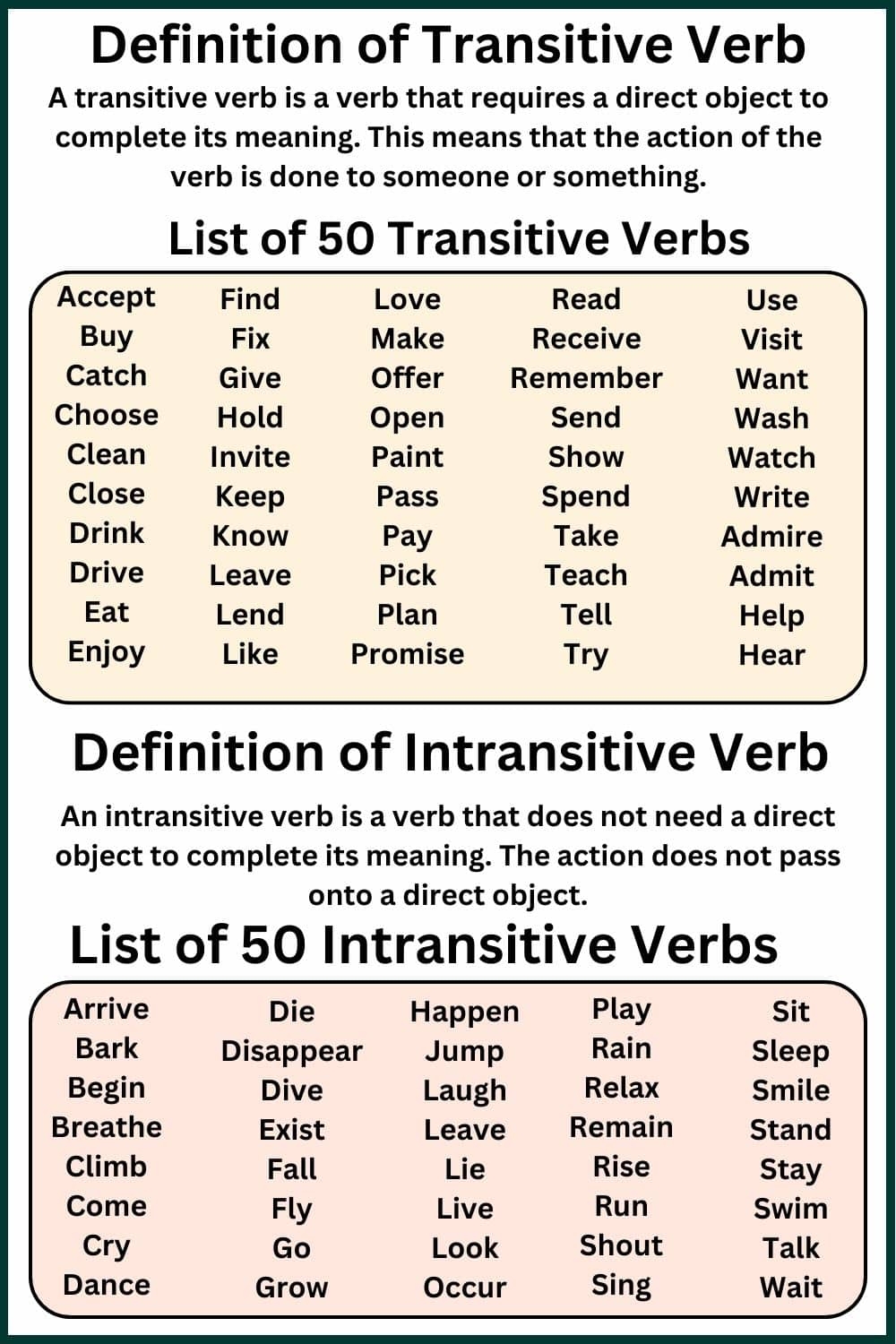Understanding the difference between transitive and intransitive verbs is essential for mastering the English language. Verbs play a crucial role in forming sentences and conveying meaning, so knowing how they function is key to effective communication.
Transitive and intransitive verbs are two types of verbs that behave differently in sentences. While transitive verbs require a direct object to complete their meaning, intransitive verbs do not. Let’s delve deeper into the distinctions between these two types of verbs.
Transitive Verb vs Intransitive
Transitive verbs are action verbs that require a direct object to complete their meaning. The direct object is the receiver of the action performed by the verb. For example, in the sentence “She ate the apple,” the verb “ate” is transitive because it requires a direct object (the apple) to make sense.
In contrast, intransitive verbs do not require a direct object to complete their meaning. These verbs express an action that does not transfer to an object. For example, in the sentence “He sleeps,” the verb “sleeps” is intransitive because it does not require a direct object to convey its meaning.
Another distinction between transitive and intransitive verbs is that transitive verbs can be transformed into the passive voice, whereas intransitive verbs cannot. The passive voice is formed by using a form of “to be” followed by the past participle of the main verb. For example, the sentence “She wrote a letter” can be transformed into the passive voice as “A letter was written by her.”
It is important to note that some verbs can function as both transitive and intransitive, depending on how they are used in a sentence. For example, the verb “run” can be transitive when followed by a direct object (e.g., “She runs a marathon”) or intransitive when used without a direct object (e.g., “He runs every morning”).
In conclusion, understanding the difference between transitive and intransitive verbs is crucial for constructing grammatically correct sentences. Transitive verbs require a direct object to complete their meaning, while intransitive verbs do not. By mastering the usage of these two types of verbs, you can enhance your writing and communication skills in English.
